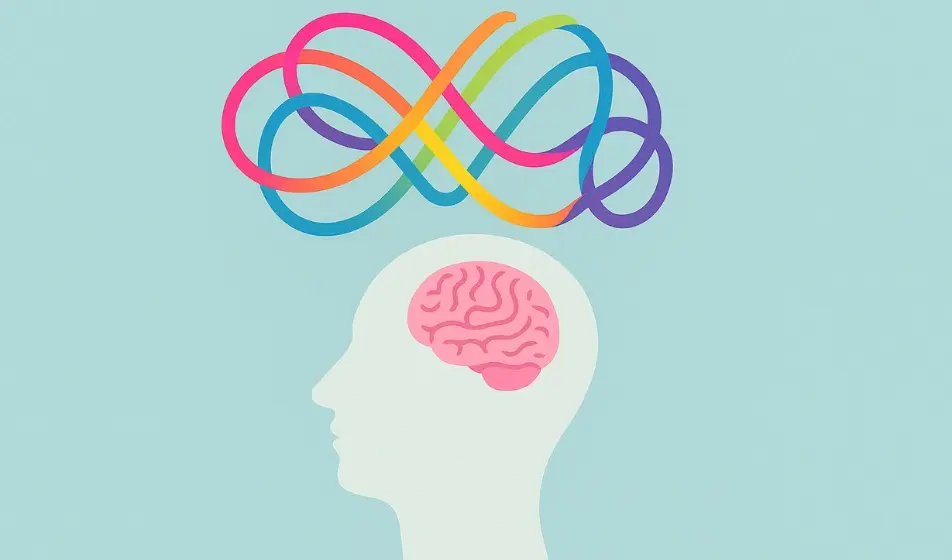When you’re busy running a business or juggling multiple roles, it’s easy for annual leave to slip down the priority list. But here’s the truth: holiday isn’t a luxury. It’s essential. Not taking time off puts people at risk of burnout - and that’s bad news for your team and your business. Burnout is a widespread issue affecting many workplaces across industries, often resulting from excessive workloads and toxic environments.
We spoke to three experts to understand how to reduce burnout from both the compliance and culture perspectives, as it can have a negative impact on both team productivity and individual employee well-being.
-
Jemma Fairclough-Haynes, Employment Law specialist and Founder of Orchard Employment Law + Breathe partner
-
Alison Benney, Founder and Owner of enlightenHR, CIPD Fellow and Breathe partner
-
Lizzie Benton, Company Culture Coach and Founder of Liberty Mind
Skip to:
- Why time off matters - and why it's a legal and cultural must have
- What is workplace burnout?
- What are the key burnout symptoms?
- How to prevent burnout and help your team take proper breaks
- Practical tips from the experts on how to help your team switch off
- Final takeaways
Why time off matters - and why it's a legal and cultural must-have
Time off isn't just a nice-to-have—it's absolutely fundamental for keeping a healthy work-life balance and protecting your team's physical and mental health.
The World Health Organization (WHO) has been pretty clear about this: chronic workplace stress leads to burnout, and we're talking about a real syndrome here—emotional exhaustion, people mentally checking out from their jobs, and their performance taking a nosedive. When you encourage your employees to take frequent breaks and actually use their holiday entitlement (yes, all of it), you're stopping burnout symptoms before they even get started.
Let's be honest, legally speaking, most countries require employers to provide a minimum amount of paid time off—and there's a good reason for that. Rest isn't optional; it's essential for wellbeing and productivity.
But here's the thing: going beyond just ticking the compliance box and actually fostering a culture where taking time off is completely normal and supported? That sends a powerful message to your team: your health matters. When you encourage employees to step away from work, properly recharge, and come back refreshed, you're not just reducing the risk of burnout—you're boosting morale and performance across the board.
In today's fast-paced workplaces, making time off a priority is honestly one of the most effective ways to reduce stress and build a thriving, resilient team that can handle whatever comes next.
Jemma says: “Holiday is not a perk. It’s a matter of health and safety.”
Lizzie says: “If holiday is treated like a perk or a reward, not a necessity, we’re creating a culture where overwork is quietly celebrated. And that’s a fast track to burnout.”
What is workplace burnout?
Burnout is a state of mental, physical and emotional exhaustion caused by chronic workplace stress. In the past, many experts believed that other medical conditions were to blame, such as depression or anxiety. Fortunately, that’s no longer the case.
What does burnout look like? Energy depletion, emotional symptoms, and reduced productivity in one's job. Even simple tasks feel like climbing a mountain. A worker may also feel like they’re losing their personal identity, or feel helpless as to why they can’t accomplish as much as they used to.
Job stress - particularly long-term stress - is a key contributor to job burnout. A worker might also experience burnout if they fail to get the results they expect at work, leaving them feeling as if all the effort they put in wasn’t worth it. Individuals often describe experiences of emotional exhaustion and cynicism as central symptoms.
Ironically, burnout usually occurs in people who initially shine very brightly, love their work, care deeply and do a fantastic job. But anyone can become exhausted—and although this can be overcome with rest, burnout can also cause a deep sense of disillusionment (which people who are more cynical about their job in the first place are less likely to feel). Experts describe experiences of burnout as involving both physical and emotional exhaustion and reduced interest in one's job.
Other factors, such as personality traits or past work experiences, can also influence the risk of burnout.
Classification and recognition of burnout
Burnout has officially been recognised by the World Health Organization (WHO) as what's called an "occupational phenomenon"—not a medical condition. If you're dealing with workplace stress or managing a team, this distinction matters.
In the WHO's International Classification of Diseases (ICD-11), burnout gets described as a syndrome that comes from chronic workplace stress that hasn't been successfully managed. It's broken down into three clear dimensions: emotional exhaustion, increased mental distance from your job, and reduced professional efficacy.
While burnout itself isn't classified as a disease, it's a serious issue that can significantly impact employees health and lead them to contact health services for support. But, recognising burnout as a workplace issue is key to resolving it.
By staying aware of the warning signs—things like persistent stress, emotional exhaustion, and that sense of detachment—you and your team can take proactive steps to manage stress and get help before burnout escalates into more severe health problems.
Outside factors can increase the risk of burnout
Burnout usually comes from ongoing workplace stress, being overwhelmed with too much work, and feeling like you have zero control over what lands on your desk. But, the chances of burnout do increase when an individual's personal circumstances are causing them stress.
Take caregiving for example. If an employee is constantly stressed at home with the responsibilities of looking after a family member or loved one, they will come to work feeling exhausted. When the workplace is also a place of stress, this makes burnout even more likely.
And it can go both ways. Burnout at work can spill over into personal life, impacting relationships, daily functioning, and overall well-being outside of work.
Physical health consequences of burnout
Burnout and chronic stress have been linked to a higher risk of heart disease, type 2 diabetes, and loads of other long-term health problems. When stress gets overwhelming, it triggers all sorts of unhealthy habits like rubbish sleep, zero exercise, and eating junk food, which just makes your physical health even worse.
Your body's response to ongoing stress? Elevated blood pressure, faster heart rate, and sky-high cortisol levels, all of which take a proper toll on your wellbeing over time.
If you're an employer, you can play a massive role in supporting your team's physical health by promoting healthy habits, encouraging regular breaks, and providing resources for exercise and nutrition. Prioritising physical health isn't just about reducing the risk of burnout—it's about helping your employees thrive both at work and in their personal lives.
The relationship between burnout and other conditions
While it's important to recognise that burnout isn't the same as anxiety or depression, it can go hand-in-hand with other mental health challenges.
Research shows that if you're experiencing burnout, you're at higher risk of developing depressive symptoms, and it can also make any existing mental health conditions you have much worse. This close relationship means that tackling burnout head-on is a crucial part of supporting staff's overall mental health and helping them to manage any other health conditions they are dealing with.
What are the key burnout symptoms?
Alison shares her top warning signs of an employee suffering from burnout:
"Dropping out of sight or contact is the most obvious sign of burnout, or suddenly realising that someone hasn't been in touch with you as usual, or is avoiding talking to you.
Changes in behaviour are also a red flag - something that is out of character for that person. For example, someone usually talkative goes quiet, or someone usually quiet is dramatically louder than usual. This can also manifest in emotional outbursts, or someone being argumentative for the sake of it."
Alison Benney, Owner and Founder of enlightenHR
Lizzie identifies similar warning signs:
Additional burnout symptoms to look out for:
-
Feeling hopeless about life and work
- Having less patience with colleagues and friends than normal
-
A feeling that every day at work is a bad day
-
Frequently phoning in sick and feeling unable to cope with work
-
Feeling physically and emotionally exhausted a lot of the time
-
Lacking in motivation to do the job or go into work
-
Experiencing negative emotions all the time such as cynicism, despondency, frustration and pessimism
-
Greater difficulty in concentrating or carrying out normal tasks
-
A drop in job performance
-
Failure to take care of oneself e.g. drinking too much, not exercising, eating lots of junk food, smoking, not sleeping
-
Health problems – burnout over a long period of time can cause physical problems such as digestive issues, obesity, heart problems and depression
How to prevent burnout and help your team take proper breaks
If you have staff suffering from burnout it can affect their performance and productivity, which of course, impacts the business. (Work out the impact on your business with our free burnout cost calculator).
Here’s some advice from our experts on helping your team take time off:
Make holiday conversations normal
Check in with your team regularly and ask: “When’s your next break?” Some people genuinely forget to book time off, while others feel guilty doing so.
Leaders need to model the behaviour too. If managers aren’t taking proper holidays, their teams won’t feel comfortable doing it either.
Alison says: “If the boss switches off at 18:00, then it's acceptable for others to do so. If they're sending emails at 23:00, even if they don't expect/require a response, their subordinates will think that they need to respond."
Jemma echoes this: “For the first five years of running my business, I barely took any leave. And guess what? My team followed suit. When I started making holiday a priority, so did they.”
Lizzie encourages organisations to ask, “Why aren’t our leaders taking holiday?” and start from there.
You can make people take time off
Yes, really. If someone’s not taking their leave and you're concerned, you can enforce it—just give double the amount of notice. So if you want someone to take a week off, give them two weeks’ notice.
Jemma says: “This can be really helpful. Especially if someone’s showing signs of burnout but insists they’re fine. You have a right to step in and protect their wellbeing.”
Tackle the root causes
Is the workload too high? Is there red tape around booking holiday? Are client demands creeping into leave time?
Human service workers (those in healthcare or social services) are especially at risk of burnout due to the demanding nature of their roles.
Lizzie shared that often it’s not the work itself that causes stress—it’s the unnecessary hoops people jump through just to rest. “Make taking time off easier. Strip out the admin, and be clear that you want people to take it.”
Don’t reward skipped leave
Avoid offering payment for untaken holiday. Legally, you can only pay for leave above the statutory amount (5.6 weeks for full-time staff). But even then, it sends the wrong message—that pushing through is valued more than rest.
Jemma put it simply: “If you pay people for unused leave, you’re encouraging a culture of burnout. You’re reinforcing the idea that holiday is optional. It’s not—it’s there to protect health.”
When you’re paying staff for untaken leave and an individual is hoarding their holiday, this can also be a sign that they’re struggling financially. If this is the case, Lizzie advises reviewing your pay and reward practices too.
Practical tips from the experts on how to help your team switch off
From Alison, Jemma and Lizzie, here are some of their best tips:
-
Use software to track usage: Tools like Breathe help you monitor holiday patterns, and flag anyone overdue a break.
-
Keep the process simple: The more barriers there are to booking, the less likely people are to do it.
-
Normalise “no reason” leave: “You don’t need to justify time off,” Jemma says. “It’s holiday—you’re entitled to it. End of.”
-
Create a handover habit: A good handover helps people truly disconnect—and reduces stress when they return.
-
Set clear boundaries: Make sure employees know they shouldn’t be answering emails outside their working hours and remind clients that your team won’t be available during their time off. Create a policy and protect that space.
“Monitor and record working hours. Employers should be doing that anyway, although very few do so if employees are salaried rather than paid hourly. The point of doing this is NOT to make sure employees are working, it’s the opposite- to make sure they are switching off.
Have clear policies on when you can/should be sending & responding to emails. Working flexibly (or out of hours) is fine if it suits you, but not if it puts someone else under pressure. You can set most email systems to only send emails within the ‘normal’ working day (e.g. 08:30 and 18:00). It will then hold emails sent outside core hours and deliver them the next working day.
Have policies which reflect that it is not acceptable to send work messages outside of core working hours and make sure that no one does – especially the boss.”
Alison Benney, Owner and Founder, enlightenHR
-
Encourage different types of leave: Think beyond the standard break. Lizzie’s seen teams introduce “duvet days”, “moving house days” or “pet adoption leave”—simple ways to make rest more accessible.
-
Create a mental health training programme: Being proactive and creating a mental health training programme can reap long-term benefits for your organisation. Giving managers the necessary training to spot signs of burnout and to address them early on can stop any problems from becoming more serious. It also shows your staff you’re a caring employer who considers their wellbeing important.
-
Remote team? Be extra intentional: Lizzie recommends simple wellbeing check-ins—even rating stress on a 1–5 scale—to spot early signs in remote teams. Alison suggests arranging for a mentor or buddy, perhaps a Mental Heath First Aider. “Make sure the buddy has some training in helping someone who is struggling, as you wouldn’t want them to become overwhelmed themselves.”
Jemma adds: “Tools like Breathe give you a simple way to see patterns. If someone’s barely taken leave by September, that’s a red flag. You can spot it early and step in.”
Other advice for preventing burnout
Give praise
Working with the impression that what you're doing isn't worthwhile or valuable can be a big factor in employee burnout. One of the best ways to increase engagement and prevent burnout is to give staff regular constructive feedback and plenty of praise for the good work they've done. If this is encouraged across your organisation, then you will start to see peer-to-peer praise which is great for morale. Our Kudos feature works a treat for this.
"Feeling appreciated is a basic human need. Without any type of reward in place, employees are likely to feel that they are working for a pay cheque and nothing more. The lack of appreciation leads to disengagement and the feeling of 'going through the motions' rather than working for an internal reward or passion. Simply recognising [employees] for a job well done will go a long way in preventing burnout."
Offer the support that your employees need
"Seek to understand what kind of support the employees want/need, rather than just the standard 'programmes'," advises Alison.
"If possible, try to help the individual to look at their lives holistically - not just 'work' and 'home'. Often, issues are caused by a combination of factors, not just any one thing or situation.
It's sometimes easier for an employee to seat the blame for how they are feeling as being totally work related, as they then avoid facing other (possibly more difficult) challenges in their lives. This also gives them someone to blame other than themselves especially if they are not in a place to take personal responsibility and action."
Promote general wellbeing
Alison reminds us that "feeling better physically often helps but when we are feeling emotionally unwell, we often neglect our physical wellbeing, too."
As part of any wellbeing programme you implement you should encourage staff to exercise regularly and eat healthily which can help reduce stress and encourage relaxation. Other things you can do include:
-
Consider offering discounted gym memberships or health perks as part of any benefits package available to staff.
-
Remind employees about recognising and celebrating their wins, no matter how small. US Navy Admiral William H McRaven's Ted Talk on the importance of making your bed every day is worth a watch.
-
Encourage small acts of kindness.
Small acts of kindness can also extend to reminding your employees that they're doing a good job, every once in a while. It's important for them to know their contribution is valued, not just by their direct manager but that it plays a part in the wider success of the business.
Breathe solves this issue by helping to organise and automate performance reviews, objective setting and one-to-one feedback. Managers can see an up-to-date overview for each employee, including sickness trends and holiday allowances.
Your final three key takeaways
-
Make leave part of the culture, not a last-minute panic
-
Look out for signs of burnout, especially in remote or hybrid teams
-
Get your legal ducks in a row—you’re required to remind people and ensure they take their statutory leave.
Ready to put all this into practice?
Here are some options for you:
-
Check if a specific member of your team is on the road to burnout with our free Burnout risk calculator.
-
Download our free checklist for an easy way to review your current approach to time off.
-
Hit the button below to dive right in and try Breathe’s holiday tracking and burnout monitoring tools free for 14 days.

Author: Aimée Brougham-Chandler
An IDM-certified Digital Copywriter (2023) & English Language & Literature graduate (BA Hons), Aimée is Breathe's Content Assistant. With 3 years' content marketing experience, Aimée has a passion for writing - and providing SME HR teams with solutions to their problems. She enjoys delving into & demystifying all things HR: from employee performance to health and wellbeing, leave to company culture & much more.







